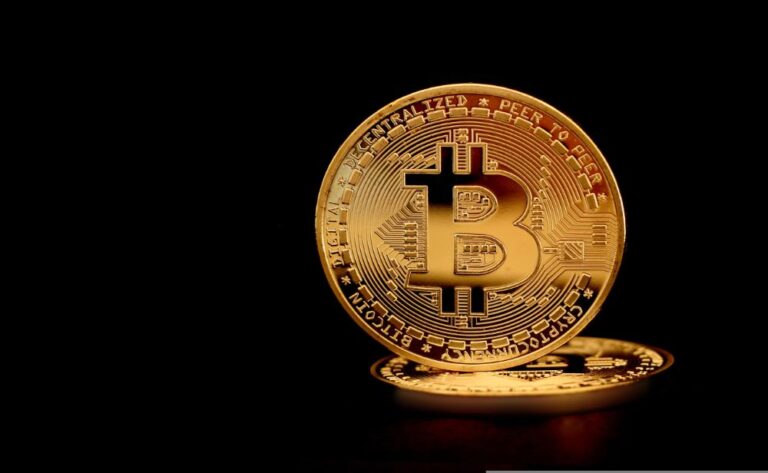Best Crypto Exchanges

Our Favorite Cryptocurrency Exchanges for 2022
Opening an account with a cryptocurrency exchange is a wonderful place to start if you want to purchase or sell cryptocurrencies. Cryptocurrency exchanges operate similarly to online brokerage platforms, providing the means to purchase and sell digital currencies and tokens such as Bitcoin, Ethereum, and Dogecoin.
When selecting a cryptocurrency exchange, it is essential to consider supported assets, fees, payment methods, and security. When compiling this list of the best cryptocurrency exchanges, we evaluated the following criteria in order to assist you in locating the ideal exchange.
Best Crypto Exchanges of 2022
- Best Mobile App: Crypto.com
- Best for Security: Gemini
- Best for Altcoins: BitMart
- Best for Low Fees and Best for Experienced Traders: Kraken
- Best for Bitcoin: Cash App
- Best Decentralized Exchange: Bisq
Cryptocurrency exchanges, unlike traditional brokerage firms, are not members of the Securities Investor Protection Corporation (SIPC). Therefore, investors with commingled cryptocurrency assets on a custodial cryptocurrency exchange could possibly lose their funds as unsecured creditors unless otherwise specified in the user agreements.
Investing in cryptocurrencies, Decentralized Finance (DeFi), and other Initial Coin Offerings (ICOs) is exceedingly hazardous, speculative, and volatile. Before making any financial decisions, you should get the advice of an expert. Neither Investopedia nor the author suggest investing in cryptocurrencies, nor can the accuracy or timeliness of the material be guaranteed.
BEST MOBILE APPLICATION Crypto.com
• No. Currencies Available for Trade: 250+
• Transaction Fees: between 0.04% and 0.4%
• Minimum Purchase or Deposit: $1
Why We Selected It
We chose Crypto.com as the best mobile cryptocurrency exchange app because it provides a robust ecosystem for trading and investing in digital assets that is conveniently accessible from a mobile device.
Pros versus Cons
Pros
• Supports more than 250 digital currencies
• Offers an assortment of cryptocurrency products
Cons
• Fees are relatively expensive
• Poor client service
Overview
BEST FOR SECURITY Gemini
• No. Currencies Available for Trade: 75+
• Transaction Fees: $0.99 to $2.99 for minor transactions and 1.49 percent for orders over $200
• Minimum Purchase or Deposit: Varies by asset
Why We Selected It
We have selected Gemini as the most secure cryptocurrency exchange due to its rigorous security protocols, insured user cash, and SOC 2-certification.
Pros versus Cons
Pros
• Accessible in all fifty U.S. states
• Extremely liquid market
• Protects funds kept in a hot wallet
• Robust security architecture
Cons
• Expensive fees for numerous transactions
• Supports fewer cryptocurrencies than the majority of its competitors.
Overview
BEST FOR ALTCOINS BitMart
• No. Currencies Available for Trade: 1,000+
• Transaction Fees: 0.045 percent to 0.25 percent
• Minimum Deposit or Purchase: $30 when purchasing from Bitmart; unknown for spot trading.
Why We Selected It
BitMart is our top pick in the category of best for altcoins since it enables users in 180+ countries to purchase and sell more than 1,000 cryptocurrencies.
Pros versus Cons
Pros
• Supports a vast array of digital currencies
• Offers cryptocurrency earning chances
• Offers a straightforward buy/sell cryptocurrency function
Cons
• Experienced a massive cyberattack in 2021
• Has received negative comments from consumers
Overview
BEST FOR LOW FEES AND BEST FOR EXPERIENCED TRADERS Kraken
• No. Currencies Available for Trade: 120+
• Transaction Fees: 0 to 0.26 percent
• Minimum Deposit or Purchase: $1, although this varies by payment type
Why We Selected It
Kraken Pro, Kraken’s professional-grade trading platform, is our pick for the best low-fee exchange since it costs some of the lowest fees in the crypto exchange landscape. It is also our top recommendation for experienced traders, as it enables sophisticated order types and futures and margin trading.
Pros versus Cons
Pros
• Significant selection of supported cryptocurrencies
• Low costs on Kraken Pro
• Extremely liquid market
Cons
• Not accessible in every U.S. state
• Few account funding choices
Overview
The BEST Bitcoin Cash App
• Number of Available Currencies: 1
• Transaction Fees: Varies
• Minimum Purchase or Deposit: $1
Why We Selected It
Cash App is our top option among Bitcoin-only exchanges since it allows you to purchase, sell, and store Bitcoin from your mobile device in a simple and secure manner.
Pros versus Cons
Pros
• User-friendly interface
• Take cash out of wallets
• Supports the Lightning Network for Bitcoin
Cons
• Supports just Bitcoin
• Protective wallet
• Various limits on deposits, sales etc.
Overview
BEST DECENTRALIZED EXCHANGE Bisq
• No. Currencies Available for Trade: 100+
• Transaction Fees: 0.10 percent to 0.70 percent
• No minimum deposit or purchase required:
Why We Selected It
Bisq is our pick for best decentralised exchange because it allows users from anywhere in the globe to purchase and sell cryptocurrencies in a secure and private manner.
Pros versus Cons
Pros
• Available globally
• Provides a high level of discretion; no ID verification is necessary
• 50+ different payment choices
Cons
• Transaction velocity can be sluggish
• Volumes of trade can be modest
• Unsuitable for active trading
Overview
Final Verdict
If you choose to begin trading or investing in cryptocurrencies, it is crucial that you select the optimal exchange for your personal requirements. There is a suitable alternative for you if you desire a big number of digital assets to trade, the lowest feasible costs, or the greatest mobile trading experience.
We discovered that Crypto.com is the greatest option for mobile trading, which is becoming increasingly popular. Bisq provides the greatest decentralised exchange, but Gemini provides the best security. Traders with experience and those seeking minimal costs will find a home with Kraken. Cash App satisfies the needs of Bitcoin-centric traders, but Bitmart is our top pick for those wishing to trade a wider variety of altcoins. Consider your objectives and priorities and select the exchange that meets your requirements the best.
Compare the Leading Cryptocurrency Markets
Do Crypto Exchanges Provide Value?
Signing up for a cryptocurrency exchange may be your best first step if you wish to acquire cryptocurrencies.
Buying a few hundred dollars’ worth of Bitcoin from a local Bitcoin ATM may be easy, but it makes more sense to use an exchange if you are interested in investing a greater sum or purchasing multiple cryptocurrencies.
Crypto exchanges are the most secure and legitimate way to acquire cryptocurrency. However, this is not the sole advantage of using an exchange. Here are several reasons why cryptocurrency exchanges are worthwhile.
• Cryptocurrency exchanges enable users to purchase and sell cryptocurrencies online or via a mobile app, facilitating access to the cryptocurrency markets from anywhere.
• The majority of cryptocurrency exchanges provide a variety of digital currencies and tokens, giving investors various alternatives for building a diversified portfolio of digital assets.
• Leading cryptocurrency exchanges often store user cash in cold storage to safeguard assets.
• Cryptocurrency exchanges worldwide typically adhere to Know Your Customer and Anti-Money Laundering (KYC/AML) standards as well as banking legislation. Users can therefore be confident that they are not dealing with a bogus organisation or malicious market participants.
Cryptocurrency Exchange Platform Comparison
There are numerous variables to consider while picking a cryptocurrency exchange that matches your needs. The most essential considerations are:
• Supported assets: If you wish to purchase cryptocurrencies other than Bitcoin, examine the list of supported assets prior to selecting an exchange. Others allow you to trade hundreds of cryptocurrencies, while others just offer a handful.
• Payment methods: Crypto exchanges often provide a variety of methods to fund your account or directly acquire cryptocurrency. While wire transfers are supported by the majority of exchanges, certain platforms also enable credit cards, debit cards, and other digital payment methods.
• Costs: Excessive fees will eat away at your investment profits, therefore it’s vital to examine crypto exchange fees prior to opening an account. Typically, cryptocurrency exchanges impose trading fees and withdrawal fees, but additional expenses may also arise.
• Security: Cryptocurrency exchanges are unfortunately a major target for hackers seeking to obtain cryptocurrency. Security breaches and cyber theft are prevalent in the environment of crypto exchanges, thus it is crucial to choose an exchange with robust security measures.
• Customer service: If you are unfamiliar with cryptocurrencies or investing, you may have questions or require assistance getting started. In this instance, selecting an exchange with superior customer service is perhaps the best course of action.
• Reputation: Before signing up for an account on a cryptocurrency exchange, you should investigate its reputation. Read customer reviews, investigate the exchange’s history, and search for recent news pieces that may provide useful insight.
Opening an Account on a Cryptocurrency Exchange
Signing up for an account on a cryptocurrency exchange is analogous to opening an online brokerage account.
Typically, an email address and password are required to commence the account creation process. You will then receive an email requesting confirmation that you are the owner of the specified email address.
After confirming your email address, you will typically be required to verify your identity. This often entails submitting personal information, proof of address, and a copy of a government-issued photo identification. The majority of cryptocurrency exchanges require your full name, home address, and mobile number, along with a utility bill or bank statement as proof of residence and a digital copy of your passport or driver’s licence.
Some exchanges may also require an additional step to verify the identity of the uploaded ID. This typically entails snapping a photo of yourself carrying your ID using a camera or smartphone and submitting it to the exchange.
Depending on the exchange and level of verification necessary, user verification can take anything from a few minutes to many days. Exchanges typically provide stages of authentication, with lesser levels requiring less information. Typically, however, lesser verification categories are accompanied by lower deposit and withdrawal limitations.
After completing the account verification process, you can fund your trading account using one of the available funding methods and begin trading cryptocurrencies.
What Is a Cryptocurrency Trading Platform? How Does It Function?
A cryptocurrency exchange is an online marketplace for buying, selling, and trading cryptocurrencies. Users can deposit fiat cash (such as U.S. dollars) and use those funds to purchase bitcoin on a cryptocurrency exchange. Users may also exchange their cryptocurrency for other cryptocurrencies, and some exchanges permit users to earn interest on assets held in their exchange accounts.
What Considerations Should You Make When Selecting a Cryptocurrency Exchange?
There are various factors to consider while selecting a cryptocurrency exchange, including security, costs, and available coins. It is also vital to understand how your cryptocurrency is stored and whether you can transfer it to your own digital wallet to assume custody.
Similarly, there are both controlled and decentralised cryptocurrency exchanges. Centralized exchanges are tightly aligned with government financial laws (such as the U.S. Securities and Exchange Commission). Many will insure deposits in U.S. dollars and need identification to use the site. Decentralized exchanges are uncontrolled online exchanges hosted on user-owned distributed nodes, with no central controlling authority. Decentralized exchanges provide transparent fees and transactions, as well as peer-to-peer cryptocurrency trading.
How Does One Acquire Cryptocurrency?
Most centralized exchanges permit you to purchase bitcoin using your bank account, credit card, or debit card. The cash can then be exchanged for a cryptocurrency of your choosing. Other exchanges allow you to place more advanced order types, such as limit and stop orders, but some offer only market orders.
Once you purchase cryptocurrency on an exchange, the exchange will normally store it in a cold wallet. Most exchanges hold their assets offline in “cold storage” for security purposes. If you choose to take possession of the cryptocurrency yourself, most exchanges permit you to transfer it to your “hot” or “cold” wallet, along with the corresponding private keys.
How Do You Create an Account on a Cryptocurrency Exchange?
Most cryptocurrency exchanges ask you to enter your name, email address, personal information, and proof of identity in order to open an account (to follow KYC standards). This process may need you to answer personal questions, verify your identification with a third-party application, or upload a photo of your driver’s licence.
After your account has been approved, you can deposit funds and begin buying cryptocurrencies.
How We Picked the Top Cryptocurrency Exchanges
Our team analysed 28 cryptocurrency exchanges and gathered more than a thousand data points using publicly available information before selecting the best options. We weighed over 20 factors and assigned greater weight to those that had a greater impact on potential customers.
The best exchanges were chosen based on characteristics such as trading fees (weighted 20%), withdrawal fees (15%), and cold storage of crypto assets (weighted 10%).
We also considered platform accessibility, the amount of accessible cryptocurrencies, and customer support choices.





